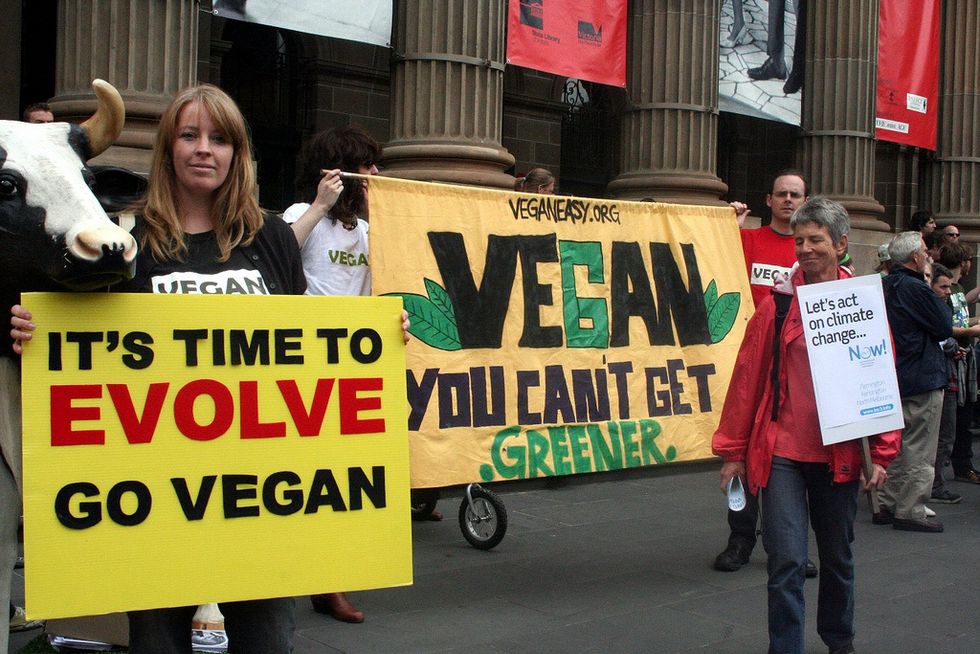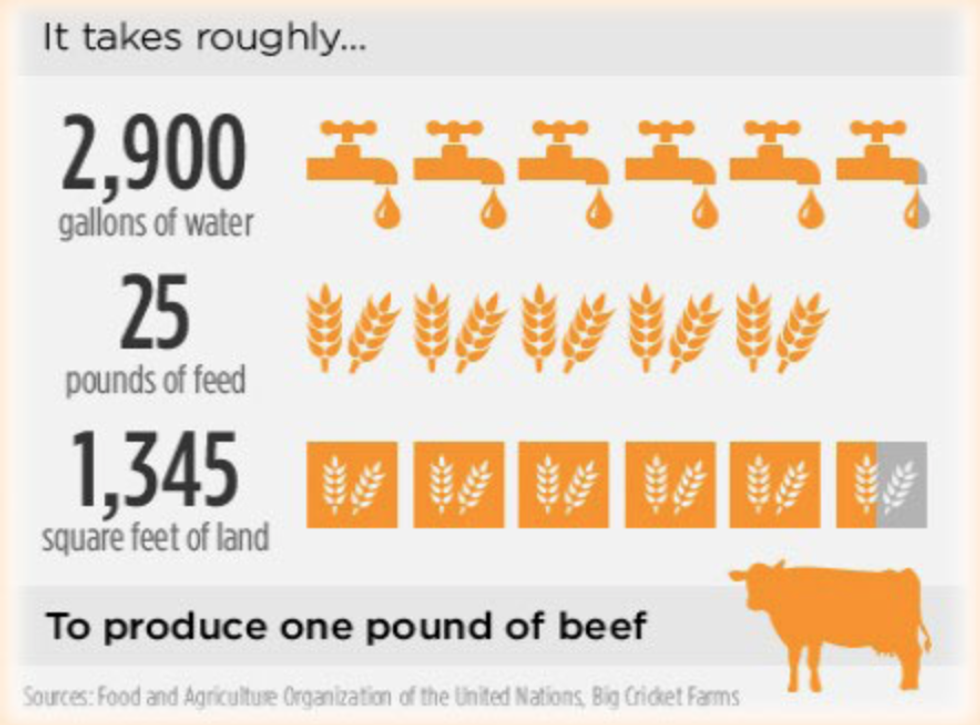Recently, the UN released a statement saying that our planet only has until 2030 to stem catastrophic climate change. This statement further goes on to say how in just 12 years, the rising temperature could exceed 1.5 C.
Yes, we might see headlines like this every day, but this is scary.
That's 12 years away from today, but if you really think about it—it's not a lot of time.
However, there are many ways that you can help make a difference and combat climate change.
One of these is living a vegan lifestyle.
Before you roll your eyes or think that I'm about to shove this diet down your throat, just hear me out. As a vegan myself, I've heard and witnessed a lot of criticism on the diet itself, such as that it "doesn't provide a sufficient amount of particular nutrients in your diet," or that "it's too expensive," or even that there's no way it can help climate change.
I'm here to tell you that all of this is wrong, especially the last one.
Climate change has been affecting us for years now, and it's slowly starting to become worse within each day that passes. Scientists have been warning us that as a society, we need to step up and take action so that we don't have to watch our planet slowly crumble. And ironically, one of these methods of action is by pursuing a vegan diet.
There have been many studies that show how animal agriculture is one of the leading causes of climate change. Tulane University did a recent study that shows that meat, dairy, and egg-consumption is responsible for approximately 84% of food-related greenhouse gas emissions in the U.S. In order to feed farmed animals, forests, which absorb greenhouse gasses, are cut down to supply land to grow the crops and to pasture them, which is linked to 75% of deforestation in the Brazilian Amazonian rainforest.
Animal agriculture also contributes to water consumption and pollution. One study shows that in order to house approximately 70 billion animals annually for human consumption, a third of the planet's land surface, as well as sixteen percent of freshwater, is devoted to growing livestock. This essentially means that a third of worldwide grain production is used to feed livestock.
However, following a vegan diet can help support the fight against climate change. According to the Environmental Defense Fund, if each American replaced meat from their diet with plant-based foods at one meal per week, the carbon dioxide savings would be the same as taking more than half a million cars off U.S. roads. Plant-based foods only make up three percent of diet-related emissions, with legumes being the least harmful to the planet. If more people could switch to a vegan diet, this could dramatically help our planet.
If we can try to start thinking more about the choices we make on what we eat, we can curb these scary statistics about our planet being in danger. I understand that not everyone can follow these diets or afford them, but the tiniest steps toward change still can help. Instead of relying on meat for protein, switch to other foods that are rich in protein, such as beans, tofu, quinoa, etc. Prepare your own meals instead of eating out at restaurants. Focus on whole foods that are unprocessed, such as vegetables, fruits, starches, and nuts, since they are usually the cheapest ones in the market. Consider buying in bulk, since big packages of food are priced at a better value compared to smaller containers.
At the end of the day, Earth is our home. And if you've got beef (pun intended) with what these scientists are calling climate change catastrophe, then maybe you should consider switching up a few things in your diet.





















